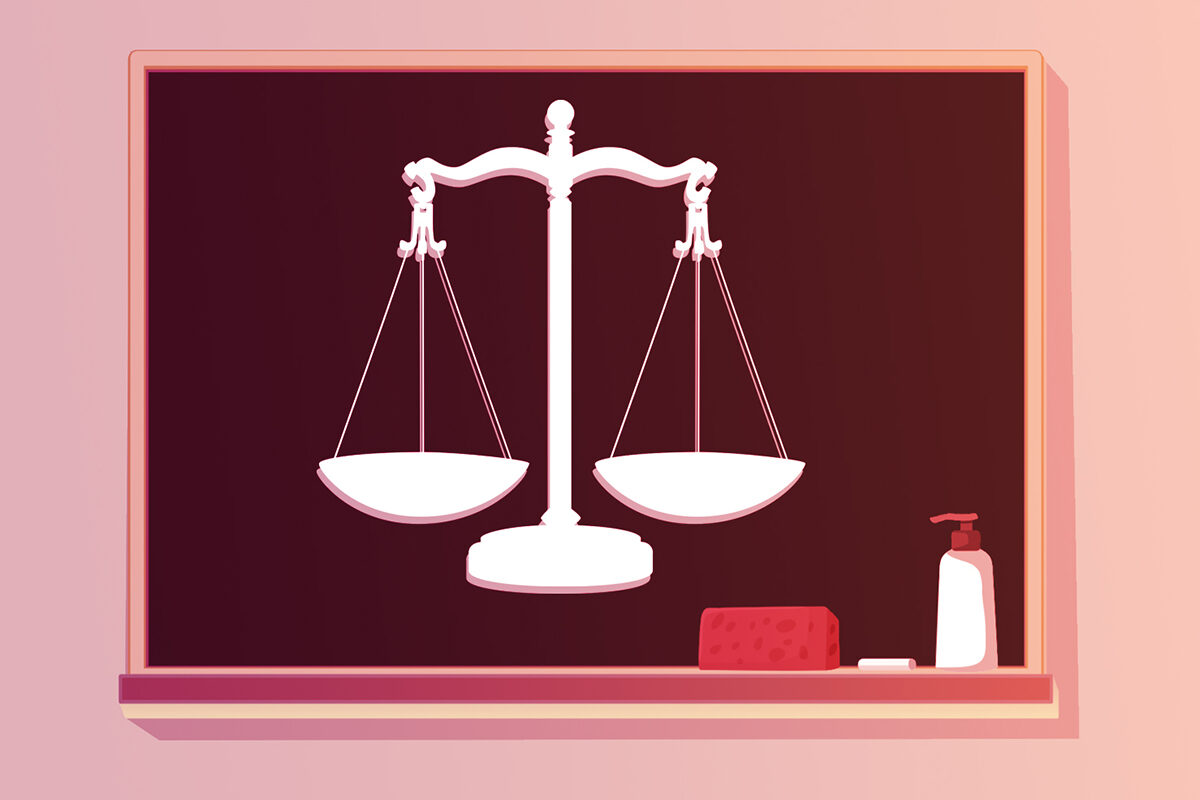Ah, summer. In normal times, we’re approaching that time of the season when we’re all becoming eager tosend our kidsback to school and resume a normal routine.
But, alas, these are not normal times, and back-to-school for the 2020-2021 school year will be anythingbut routine. As schools and parents across the country struggle with whatthe school yearwill look like — another round of distance learning? In-person classes with social distancing measures in place? Some combination of both? —苹果beplayand our partner site, theJewish Telegraphic Agency, are combining forces to explore essential back-to-school questions and concerns that Jewish families are facing in these strange times.
A joint project, Back To School? will feature a series of articles as well as a weekly webinar series that will together explore decision-making dilemmas, teachers’ concerns,parents’ fears, and much more. Our first live discussion, held on July 28, was an all-star panel of Jewish professionals who are also stellar parents: Rabbi Danya Ruttenberg, award-winning author; Rabbi Seth Goren, Hillel Ontario’s chief education & campus officer; and Meg Keene, founder and editor-in-chief of A Practical Wedding.
During our conversation, we discussed the challenges that we have faced thus far and how to take control, stay calm, and live our values — evenduring a pandemicwith no end in sight. You can catch up on this past week’s episodehere,or read on for the top takeaways:
The best-laid plans of mice and men…
大流行以来,“空前的”一词has been in near-constant use. And with good reason: Part of what makes this time so challenging is living in a world of utter uncertainty. When it comes to the approaching school year, there are so, so many questions: Whatrules and precautionswill be in place if our kids are going back to school buildings? What will the hours be? Class size?
Sadly, we do not have those answers, nor do we knowwhenwe’ll have those answers. (On top of this, it’s increasingly clear that many school administrators do not have these answers, either.) Still, we can arm ourselves by creating and presenting multiple options to ourselves and our children. This is a way of assuring ourselves, and our kids, that we will figure something out.
Still, keep in mind that whateverisfigured out by the time school begins, it will probably need to be refigured over and over again. While this lack offirm planscan be particularly challenging for some, try to present this new, flexible mode of decision making as your new structure.
And if you need some hope, remember this: This school year is not last year. Last year we were in constant emergency mode. Though Covid-19 rates are rising in many parts of the country, we are insomewhatbetter shapeand better informed this year.
Different parents have different needs and standards.
Some parents are struggling to parent whileworking long hours; some parents wish that they were gainfully employed. Even if we are “all in this together” when it comes to coronavirus, everyone is also struggling with certain specific, unique realities — including immunocompromised family members, unemployment, mental health emergencies, deaths of loved ones, and so on. This personal baggage is also coupled with our understanding and expectations of what we, as parents, should be doing when it comes to our kids’ schooling. That’s a lot of layers — you and your BFF may not see eye to eye, for example, and that’s OK.
As it happens, Kveller and JTA are both a part of70 Faces Media— an aptly named organization that meant to highlight the notion that there are “70 faces” of the Torah. In other words, there are 70 different perspectives on understanding, interpreting, and observing the Torah. According to this Jewish rule of thumb, we canallbe right.
Acknowledge your privilege but be careful not to label others.
Simply having choices regarding your kids’ schooling is a privilege, even having this conversationis a privilege! Still, at the same time, it is important not to assign what is or is not a privileged choice. For example, Meg shared that while “pods” — families banding together in small groups for schooling — are widely portrayed as privileged options, many less well-off parents are also coming together in pods in order to co-parent as a larger unit, allowing everyone to stay employed, especially if they are not able to work if they are not in the workplace.
更美好— the Jewish value of “repairing the world” — can really play a role here: If you’re considering a pod for your family, you can also consider inviting members from different socioeconomic backgrounds and have fees based on a sliding scale.
Ultimately, these school choices are not binary. Just as there’s a myriad of challenges with the scenarios we are facing, there are numerous solutions, too.
Take care of yourself.
There’s no playbook here, and there are no wrong nor right answers. We are all balancing so many factors, including ourown needs, our loved ones’ needs, and, yes, strangers’ needs. Remember the last time you were on an airplane and were instructed to first put on your own mask before helping others? Same applies here. We are all in this together but we need to find some balance and help ourselves, too. Be compassionate andkind to yourselvesso that you can do the same for your children and others.
Want more?Every Tuesday at 1 p.m. ET, you can tune into the live conversation on the Facebook pages of苹果beplayorJTA. This week, we will be talking with a group ofIsraeli parentswho have half a semester of pandemic schooling behind their collective belt, and we’ll be exploring what we can learn from their experiences (and mistakes!).
Do you have an idea for a topic or guest for our Back To School? series? Emailsweissgreenberg@70facesmedia.org. See you on Tuesday!
Header image via nicoletaionescu/Getty Images








